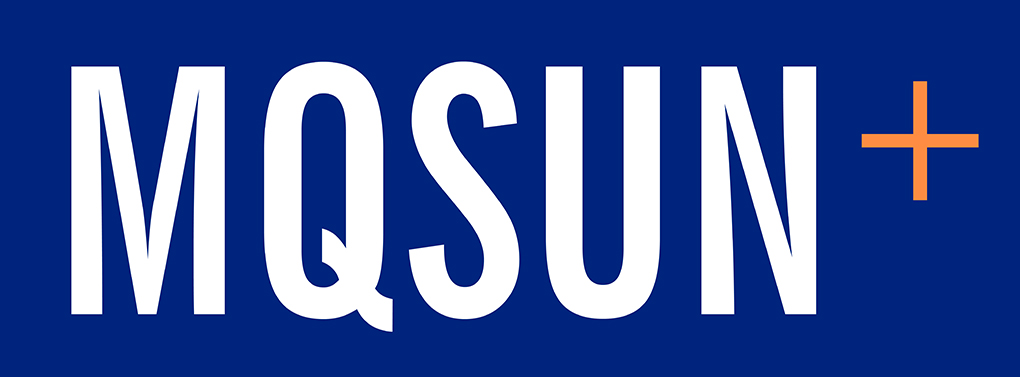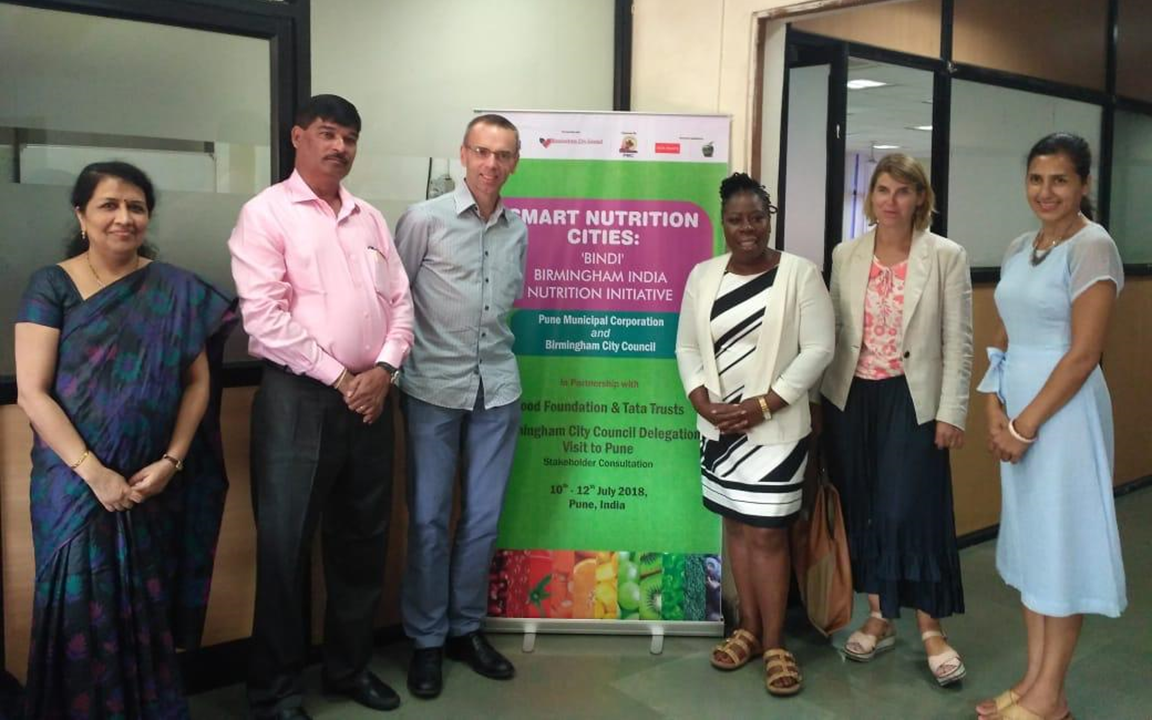The Birmingham India Nutrition Initiative (BINDI) is a learning partnership between Birmingham, UK and Pune, India aimed at developing smart policies which support nutritional impact. With support from Tata Trusts, Wellcome Trust and DFID through MQSUN+, the Food Foundation has supported BINDI to consider nutrition-related governance in the two cities, promote citizen engagement and facilitate communication between local stakeholders to advance knowledge transfer between these two cities.
Birmingham and Pune are both large cities facing a series of nutrition challenges, including unhealthy diets, which bring about micronutrient deficiencies and childhood undernutrition, overweight and chronic disease. Contributing factors include growth of urban areas, unemployment and/or food insecurity, increasing access to fast food restaurants and/or unhealthy foods, and constrained funding for public health services.
The two cities exist within very different development contexts. However, through this partnership, they identified many areas of common interest. Throughout this process, the Food Foundation’s Executive Director Anna Taylor facilitated the cross-city communications around experiences, learning and best practices.
Recently, MQSUN+ sat down with Anna to get her perspective on working with Birmingham and Pune through this learning partnership for urban nutrition.
Over the course of the implementation of the partnership, what has gone as expected or not as expected?
In some respects, we have gotten a little bit further than we had expected, for example, in building trust and political commitment across both cities—as it has gone to the highest levels.
What we had not quite anticipated is the impact of the distance factor, which is a barrier on both sides. We had hoped there would be opportunities for many more people to get to know each other and for sharing experiences. While we had exchange visits between both cities—which was useful—I do not feel we got as far as we would have liked with that. That is just a reflection of the difficulty of officials getting travel clearance. We have taken to using teleconferencing platforms, but the limited travel makes it hard to keep the conversation joined up and connected.
What surprised us the most is the extent to which there are so many commonalities between the two cities and the extent to which there was a huge amount of goodwill and common interest over the substance of what they wanted to do. For example, both cities have now initiated surveys—Birmingham is funding their own, and Wellcome Trust is funding the one in Pune—asking citizens about practices around eating out of the home and asking views on policy choices. They want to learn from each other about how to tackle unhealthy food environments. That is a great place to be. International development is often a long way off from northern countries and southern countries really sitting alongside one another in an equal way, which is the vision for this partnership, and which is what this partnership has achieved.
What would you say was the biggest challenge you overcame or lesson you learned?
The biggest obstacle was that we had a very slow start with Birmingham, because there was so much transition in the leadership. While one of Birmingham’s city councilors was involved the entire time, there were several transitioning Directors of Public Health. Fortunately, the current incoming Director has now created a lot more stability. We knew, over time, this issue would resolve itself, but we had to put a lot of energy into keeping the partnership on the agenda throughout—involving the leader of the Council and having numerous meetings to keep it on track.
Also, so far, this partnership has not been particularly well-resourced besides the donor funding. This is what we anticipated, envisioning this as “phase one.” Hopefully, there will be a “phase two” with perhaps Birmingham taking some leadership around the Commonwealth [Games 2022] and Pune joining in through that process.
What would you say you think it was the biggest accomplishment thus far?
The biggest accomplishment is having a partnership between two cities which is genuinely equal—where they are learning from each other. Another is the fact that we found so much common ground around food systems across two very diverse settings. That captures the spirit of the Sustainable Development Goals, and that is the kind of work that we all need to be doing a bit more of.
Given your experience from the last couple of years, do you see this type of city partnership as being a beneficial approach for urban areas to move toward being a nutrition-oriented ‘Smart City’?
Yes, I do. There is a lot of scope considering there is such a vibrant city-level conversation going on around food in many countries. The nutrition focus is a helpful addition because a lot of the food conversation has been grounded in green economy and sustainability, but not thinking about health and nutrition. We have also explored and strengthened the connection to the ‘Smart City’ agenda: there is mileage out of making those connections, to really embed the goals around health and nutrition more firmly within a city’s political leadership. There is a lot to build on.
What do you think either works well, or would need to change, to make this type of city partnership transferable or replicable in another context?
These kinds of partnerships do not happen on their own. I am confident that this one would not have happened without us. The Food Foundation played an important part in facilitating the conversation and helping the cities to speak in a joint manner and connect on the issues. That is not to say that two cities could not spark up a relationship or manage to do it without an interlocutor. It would not always have to be the case, but I imagine that a facilitator is an important part of the mix.
Having a common view is also important: an ambition to use the devolved powers—which cities have—and ‘flex their muscles’, essentially, in policy terms at the city level to try and shape food systems. That ambition has to be the starting point, really, because that is really at the heart of why there is value in peer support and learning from each other.
Do you see this investment as being sustainable? What do you see as the next steps for this partnership to be strengthened and these cities to continue becoming smarter?
Each city’s leaders will be taking the partnership forward. It will be interesting to see how much they are prepared to progress the conversation bilaterally and how much they are going to depend on external support. India is coming to [the Annual Gathering of the Milan Urban Food Policy Pact (MUFPP) in] Montpellier in France in October, to meet with Birmingham. There, they will talk about their survey findings and start the next step—really thinking about the policies that they want to introduce and seeing whether there are any that they are both going to pursue and where they can have an ongoing conversation on progress. That is the key thing. Then, the next step will also be to consider to what extent their partnership can be expanded beyond their two cities, bringing in other cities in the run up to the Commonwealth Games and spreading the word.
Lastly, we open it up to you if there is anything else you would love to share about the partnership.
We have done quite a lot of work through the partnership in looking into experiences from elsewhere; material we have collated could be of wider value. The real value of the partnership inevitably comes from the relationships that have been built rather than what has been written on paper. In that sense, it was very inspiring—I am hopeful that more partnerships like this will emerge in the future.
We want to thank Ms. Taylor for taking the time to talk with MQSUN+ about her experience facilitating this partnership as well as Michelle Martinez for providing support to the drafting of this blog.





